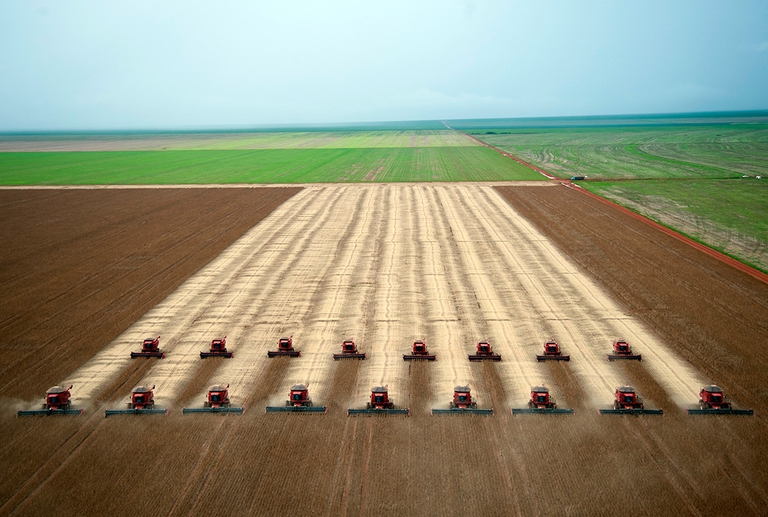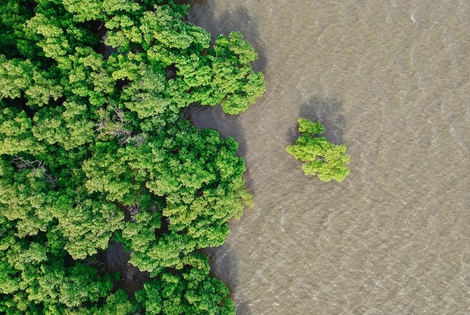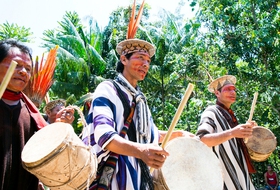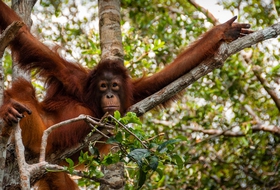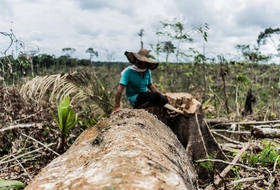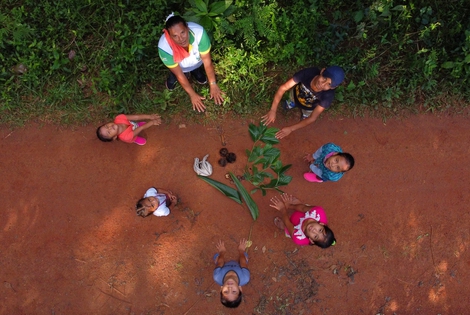
The Amazon became an alternative classroom during the pandemic. Now, the educational forest in Batraja, Bolivia, lives on to teach children and adults the value of nature.
What’s hidden behind a simple hamburger? Hundreds of thousands of kilometres of forest in Brazil and Bolivia that don’t exist anymore, just to start.
The fast food restaurant chain Burger King buys soy that destroys forests in South America to feed cows and pigs with which it produces the hamburgers it sells all over the world. These soy plantations are enormous and ever-expanding and they damage tropical forests, including the Amazon, in Brazil and Bolivia. Mighty Earth, the organisation that launches international campaigns to protect the environment, revealed it in a report called The ultimate mistery meat that shows the connection between hamburgers that are bought and eaten at Burger King and other fast food chains and the destruction of virgin forests that exacerbates the phenomenon of global warming.
What’s @BurgerKing hiding in its mystery meat? Deforestation! RT to tell BK to stop buying from suppliers driving #deforestation. pic.twitter.com/oQJTuyhDfu
— Mighty (@StandMighty) 26 febbraio 2017
Using drone and satellite photographs and field research, the report shows the methods – from bulldozers to arsons – that suppliers such as Cargill and Bunge employ to clear forests in order to make room for soy plantations. Forest destruction mainly occurs in the Bolivian low-lying plains and the Brazilian Cerrado, a biodiverse area in the tropical savannah – actually, the most biodiverse ecosystem in the world.
“The connections are quite clear. Bunge and Cargill supply Burger King and other big meat sellers with grain. McDonald’s, Subway and KFC are not perfect but they’re doing a hell of a lot more to protect the forests”, said Mighty Earth CEO Glenn Hurowitz. “ If Burger King does not respond immediately to people who want to know where their food comes from, then people should shop elsewhere”.

7,989 square kilometres (about 800,000 hectares) of land were clear-cut in Brazil last year, 29 percent more than in 2015 when 6,207 square kilometres were deforested. The same happened in Bolivia, which saw 3,508 square kilometres of forest disappear in 2016, a lot more than the 2,700 square kilometres burnt on average in the ’00s. Obviously, soy isn’t the only product linked to this catastrophe. Food industries in general control the fate of South American forests.
Burger King, in particular, can do much better according to Mighty Earth’s report. The chain has more than 15,000 restaurants scattered in about 100 countries and was acquired by the Brazilian multibillion-dollar investment firm 3G Capital in 2010 for 3.8 billion dollars (about 3.6 billion euros). 3G Capital, among other things, owns Kraft Heinz Company that produces ketchup, cheese and other food products used by fast food restaurants, with an annual turnover of about 10 billion dollars. For this reason, it’s crucial that Burger King uses its influence in a positive way putting pressure on the company to which it belongs and on suppliers like Cargill, to encourage them to adopt policies against deforestation and the exploitation of natural resources coming from the lungs of the Planet. Cargill itself – that employs more than 15,000 farmers in soy plantations – wanted to have its say and told the British daily the Guardian, which published a piece of news on the report, that it wants to half its impact on forests between 2020 and 2030.
The organization Mighty Earth decided to launch a petition against the “kings of deforestation” and advance a moratorium on soy plantation expansion to which all Latin American countries must adhere “to support sustainable agricultural expansion”.
Siamo anche su WhatsApp. Segui il canale ufficiale LifeGate per restare aggiornata, aggiornato sulle ultime notizie e sulle nostre attività.
![]()
Quest'opera è distribuita con Licenza Creative Commons Attribuzione - Non commerciale - Non opere derivate 4.0 Internazionale.
The Amazon became an alternative classroom during the pandemic. Now, the educational forest in Batraja, Bolivia, lives on to teach children and adults the value of nature.
Our species took its first steps in a world covered in trees. Today, forests offer us sustenance, shelter, and clean the air that we breathe.
Bangladesh suffered widespread damage as a result of Cyclone Amphan. Yet the Sundarbans mangrove forest acted as a natural barrier protecting the country from further destruction, as it has done countless times before.
On top of a 2.4 million dollar compensation, the indigenous Ashaninka people will receive an official apology from the companies who deforested their lands in the 1980s.
The tapir was reintroduced into Brazil’s Atlantic Forest, the country’s most at-risk ecosystem. The species can play a key role in the forest’s recovery.
Forests are home to 80 per cent of the world’s terrestrial biodiversity. This year’s International Day of Forests highlights the urgent changes needed to save them.
After a legal battle that lasted two years, Indonesia’s Supreme Court has revoked the permit to mine for coal in the forests of South Kalimantan in Borneo.
The list of human and animal victims of the Australia wildfires keeps growing – one species might already have gone extinct – as the smoke even reaches South America.
Areas where the FARC guerrilla used to hold power in Colombia have faced record deforestation. Farmers cut down trees, burn land and plant grass for cows. Because, “what else can we do for a living here in the Colombian Amazon”? An intimate report from the heart of the felled forest in Caquetá.
